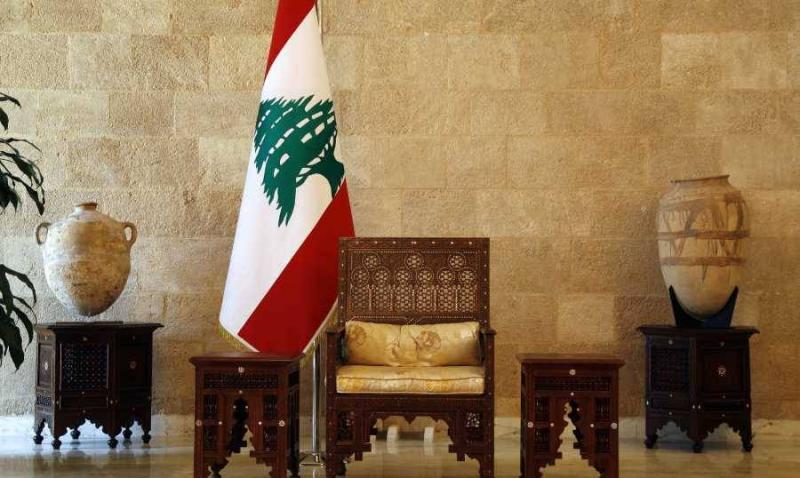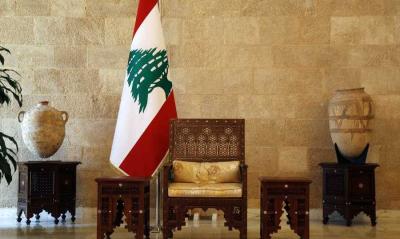In the past 48 hours, political and diplomatic circles have been focused on following the course of Israel's reaction to UN Security Council Resolution 2728, which calls for a ceasefire during Ramadan, allowing for the exchange of prisoners and detainees, and the entry of aid to Gaza and its residents. While Hamas quickly agreed to the resolution, which triggered a crisis of trust between the United States and Israel due to Washington's failure to veto the decision, Israel has, until now, ignored the UN resolution and intensified confrontations in Gaza, extending to the Lebanese front. This escalation prompted Hezbollah to retaliate by targeting Israeli military bases in the occupied Golan Heights, as reported by "Al-Liwaa".
Political sources have ruled out that the expansion of Israeli airstrikes deep into Lebanese territory and targeting areas far from the frontline between Hezbollah and Israeli occupation forces along the southern Lebanese border will lead to an open war between the two sides. They emphasized that Hezbollah's focus on responding to military points facing traditional conflict areas reaffirms that the confrontations remain within the so-called established rules of engagement between the two sides since the "Tsunami of Al-Aqsa" operation. They also conveyed to inquiring political factions that there is no intention to retaliate against enemy areas and bases deep within Lebanon for the time being, in order to remove any pretext for the enemy to target Lebanon.
Sources revealed that Lebanon is maintaining ongoing communications with active friendly and allied countries to prevent Israel from expanding its aggression towards Lebanon. They indicated a near-complete international concern to prevent the escalation of clashes between Hezbollah and Israeli occupation forces into Lebanese territory. However, there is concern over the continued threats from Israel if American diplomacy and others fail to reach an understanding or potential deal between the two parties on the southern Lebanese border in the near future, paving the way for a return to the situation that existed before October 7, and allowing Israeli settlers to return to their homes from which they were displaced, in exchange for ending all armed manifestations deployed by Hezbollah along the border, thus addressing the issues along the southern Lebanese border with Israel.
The sources further stated that Lebanese officials did not communicate directly with American presidential advisor Amos Hochstein regarding recent developments, nor through his team in Lebanon. They revealed that Lebanon is still awaiting the results of the meeting that the American presidential advisor held with Israeli Defense Minister Gantz, who recently visited Washington, to find out what was reached concerning the southern Lebanese border situation. Sources close to Hezbollah express concern that the support war in the south could extend until the end of this year, with uncertainty regarding its potential expansion into a comprehensive war; the situation remains entirely open, and the enemy is unlikely to accept the ceasefire mandated by the UN Security Council, lest it be seen as a victory for Hamas.
Political sources informed "Al-Liwaa" that with the end of this month, the situation in the south will remain characterized by escalation, and there are no indications that the field reality is nearing a relatively stable state. Meanwhile, the presidential scene has returned to square one, and despite some rounds by certain stakeholders, they have not altered this scene. The sources indicated that delaying the constitutional deadlines until after the holidays does not imply any possibility of changing the presidential conditions regarding the approaches of both the opposition and the resistance factions or their stance towards negotiation or dialogue.
Additionally, the sources noted that events in the Ramyeh area necessitate reactions from both the opposition and the Free Patriotic Movement, rejecting any Lebanese town being turned into a launch pad for missiles. Regarding the document from Bkirki, the sources indicated that the possibility of its issuance with national points considers all aspects related to the Christian reality and the pending constitutional affairs, as well as the issue of sovereignty and Lebanon's decision to distance itself from any war and the implementation of international resolutions.
In this context, political forces and parliamentary blocs continue to strive for a solution to the primary impasse exacerbating the Lebanese situation by electing a new president. According to a prominent leader in the "Shiite duo," it is impossible to elect a president before dialogue, and no initiatives—neither quintets nor internal ones—can proceed without dialogue. The leader called for dialogue and agreement on a president. He explained his position as follows: the national duo has informed all parties and international envoys above and below the table of its adherence to the candidacy of Suleiman Frangieh, the head of the Marada Movement, and remains committed to this stance, while hypothesizing that if all parties agreed to dialogue and named their candidates but concluded that the chances of any of the proposed candidates winning were improbable, it would be a natural outcome of the dialogue for all parties to consider a third candidate.




